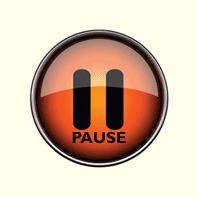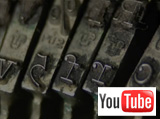|
Plotting a novel
 It
looks easy when you read a novel with a great plot, but it's
a lot harder when you're in the driving seat. It's the same
when you hear a great song; easy to pick up and repeat, but
you could spend your whole life trying to come up with anything
better, or even comparable. It
looks easy when you read a novel with a great plot, but it's
a lot harder when you're in the driving seat. It's the same
when you hear a great song; easy to pick up and repeat, but
you could spend your whole life trying to come up with anything
better, or even comparable.
You don't always need
a plot, mind; at least, nothing that is too obviously
a plot. And this is where novels fall into two broad camps;
character-driven stories, or plot-driven stories.
There's an important difference
between the two.
Character-driven novels are
pretty much as they sound; tales about character and how that
character develops through the pages of your book.
Plot-driven novels are less
about character development, and more about what happens
beyond the character, ideally with all kinds of twists and
turns.
Best of all, arguably, are
novels that have great character development and a great
plot. But these books are rare, and are hard to contrive. In
fact, the act of contriving these kind of novels often results
in a book that feels contrived, albeit very cleverly.
What's really needed is a contrived
book with great plot and character that moves seamlessly through
the pages with events and personality changes unfolding naturally
and fluidly.
Character-driven stories, meanwhile,
begin with (or at least are centred upon) a flawed character.
Not necessarily weak. Just flawed. Or "human" if you prefer.
Your character needs to have a goal, but is prevented from achieving
that goal because of his or her internal conflicts.
Internal and inner conflicts
You might have a lead character
(a white man) who needs a blood transfusion to save his life,
but refuses to accept the only blood available, which happens
to have come from a black man. There can be any number of reasons
why the white man doesn't want black blood (or is can be vice
versa, of course). It might be pure bigotry, or due to a murder
in the family in which a black man (or white man) was the suspect,
or because of racial tensions in a small town, or for religious
reasons, or anything at all.
The important thing is to show
an inner plot conflict, and then work to resolve that conflict
in the narrative. There doesn't have to be a lot "happening".
The drama might play out on a small "stage". Or the stage might
be much larger. But unless your hero's character changes
significantly throughout the story, it's not really a character-driven
tale.
It may be that many
characters change. Think of the film Twelve Angry Men
(the original film with Henry Fonda). Here we have a jury charged
with deciding the fate of a Puerto Rican boy accused of killing
his father. Each of the 12 jurors brings his personal baggage
into the jury room, and each character is skilfully disrobed—which
changes some, but not all, of the characters as the story progresses.
There is plot too including
some very clever twists and turns. But essentially it's a character-driven
tale set on a small stage. Theatre plays are usually (by necessity)
character driven, whereas blockbuster movies are generally plot
driven.

Want to read more?
There are over 25,000 words of
writing tips and advice on my website. I've spent months
writing these pages, and years refining them. I'm happy to
share my professional knowledge with you. But like everyone
else, I need to capitalise on my skills and efforts.
For just £1.99 I'll send you my entire
MR EDIT'S WRITING ADVICE FOR AUTHORS as a .pdf file. Just follow the link below, or above, and you'll be taken to PayPal. You don't need an account; just a credit card or a
debit card.
You'll generally receive my writing
guide within an hour. But occasionally technical glitches
from PayPal delay this for up to 24 hours.
Either way, you'll receive 25,000
very helpful words that will make you a better writer, will
give you fresh insight into your work, and
will improve the chances of a literary agent or publisher
accepting your manuscript.

Mr Edit
YouTube videos
Meanwhile, here are
some of my You Tube videos that might be of interest to you.
Hope you enjoy them.

Mr Edit. Let's talk about dialogue
https://youtu.be/KG0CLm1S9Rs

Mr Edit. Pitching fiction to a literary
agent.
http://www.youtube.com/watch?v=yy698w2Ooc8

Mr Edit. 5 Minute Fiction Fix.
https://youtu.be/y6OPUfcDH90

Mr Edit. Let's talk about tautology.
http://www.youtube.com/watch?v=_zhoBLImV6U
Links for writers
Preditors
& Editors. Here's where you can check out the credentials
of literary agents and publishers. A must for any writer.
http://pred-ed.com
Creative Helps.
Helpful resource for the creative community. Articles, links
and tips.
http://www.creativehelps.com/products.htm
Nick Daws'
Writing Blog. Lots of useful posts on all aspects of writing,
both for print and online, plus a guest post for anyone who
wants to make a contribution. Check it out.
http://www.mywritingblog.com
Back to the top
|